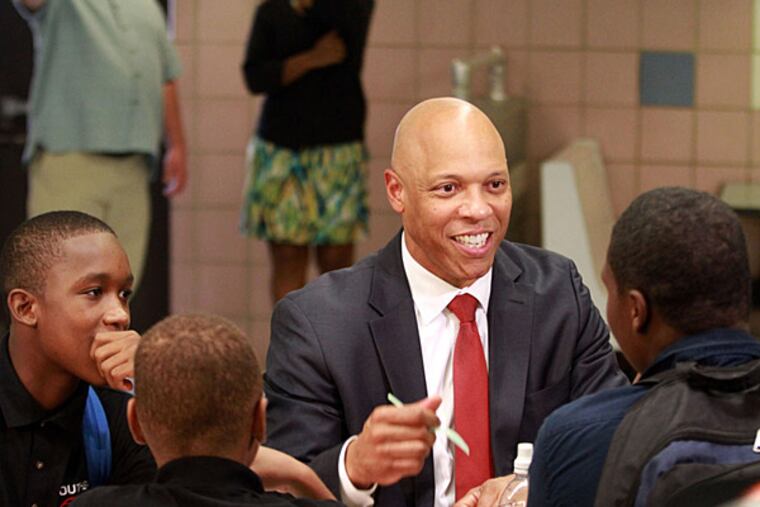Education Still in Crisis
The School District of Philadelphia has forecast more than $300 million in deficits. It may be in need of serious educational reform.

Public schools in Philadelphia opened on time this year, but just barely; the city had to promise to find an additional $50 million to hire furloughed teachers and other staff. And though the doors are open, the School District is still in a state of crisis. It has forecast a budget deficit of more than $300 million, and has had problems accounting for the state money it receives and keeping accurate financial records, according to state audits over the past two decades.
How the city chooses to respond to this crisis will say a lot about whose interests are most important: the adults or the children.
In a crisis, we ought to recognize opportunity. I see a clear opportunity in Philadelphia to use this moment to implement education reforms that will increase transparency in school funding, ensure that available dollars are going toward the programs that have the most impact on student learning, and protect effective teachers and keep them in the classroom. That's the approach being championed by Mayor Nutter and Superintendent William R. Hite Jr., and it's the right one.
Others, however, have chosen to use this moment of crisis for their own gain. The leadership of the Philadelphia Federation of Teachers (PFT) chose to approach the problem by flexing political muscle. It put its own interests ahead of the children, and bought TV, radio, newspaper, and online ads attacking Nutter.
A constructive conversation is needed. There are more than 140,000 students in Philadelphia public schools relying on the PFT, the city, and the state to come together to determine not just how to keep the schools open, but how to make those schools thrive and excel. Students deserve great teachers who inspire, academic classes that challenge, robust art, music, and sports programs, and a fair shot at long-term success.
The most immediate solution is to ensure that a great teacher is at the front of every Philadelphia classroom. The calm, guiding hand of a great teacher - especially in challenging times - can truly change the course of a child's life.
The district's action last month to allow schools to rehire laid-off staff based on student need and teacher performance, instead of just seniority, is encouraging. I agree with Gov. Corbett that the next teacher contract should go even further. Rather than base teacher salaries solely on seniority, the district should implement performance pay to help recruit, retain, and reward great teachers. We are talking about one of the most important professions in the world, and should be taking active steps to reward excellence.
The process by which teachers are assigned to schools should also be based on student need and teacher merit, not merely seniority. Instituting a policy called "mutual consent" - where both the principal and teacher agree on a school placement - would empower schools to make decisions based on what is best for kids, not what is required by union rules.
These reforms shouldn't be made only in Philadelphia, but in districts across the state as well.
Pennsylvania would positively affect student achievement if it also implemented a student-centered funding formula and ensured that its expenditures and the outcomes they created were transparent to the legislators and the public. We must ensure that education dollars are spent in a way that makes the biggest impact on kids. At the same time, Pennsylvania residents need to be able to hold district and state leaders accountable for spending decisions, and see how school dollars affect student achievement. How else can we know if school districts are throwing good money after bad unless the state is tracking which programs work and which do not?
Districts also need flexibility. Students in one district may have different needs from students in another, and state funding should reflect that. A formula based on accountability, flexibility, and transparency would help improve student learning and stabilize district budgets.
Nearly everyone agrees that Philadelphia schools need more stable funding. However, simply pumping more money into a broken system will not improve student achievement. Though the crisis has been incredibly trying for students, teachers, and families, we need to take advantage of the opportunity to implement the long-term reforms that will make the district more effective and financially stable.
With good-faith collaboration, the School District of Philadelphia can emerge from this crisis stronger, more secure, and, most importantly, ready to provide an education that prepares all students for success in life.